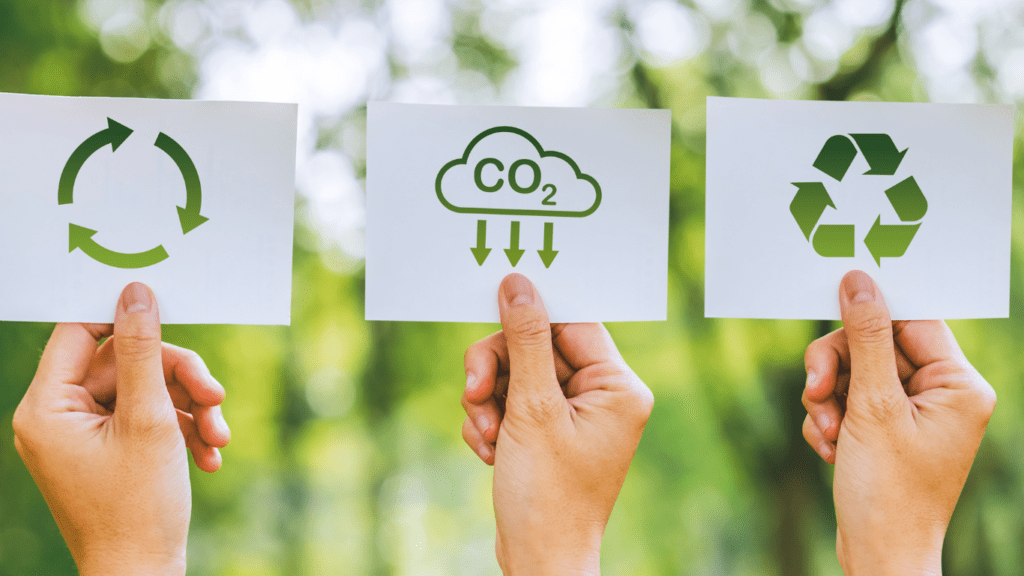The Rise of Green Startups
Green startups have gained significant attention due to their focus on sustainable and eco-friendly solutions to address environmental challenges.
What Are Green Startups?
Green startups are companies that develop products, services, or technologies aimed at reducing environmental impact.
They focus on sustainability, renewable energy, waste reduction, and efficient resource use. Examples include firms that produce biodegradable packaging, create innovative recycling solutions, and develop clean energy technologies.
Why Are They Gaining Popularity?
- The popularity of green startups has surged due to shifting consumer preferences and regulatory pressures.
- More consumers prioritize eco-friendly products, driving demand for sustainable solutions.
- Government policies increasingly favor green initiatives, providing financial incentives and support.
- The growing awareness of climate change and environmental degradation drives investor interest in green startups, which combine profit potential with positive environmental impact.
Financial Benefits of Investing in Green Startups
Green startups offer fantastic financial benefits beyond environmental impact. Let’s explore two key aspects: long-term growth potential and government incentives and grants.
Long-Term Growth Potential
Green startups are experiencing substantial long-term growth potential. Consumer demand for sustainable products and services continues to rise quickly.
According to BloombergNEF, the global clean energy investment reached $501.3 billion in 2020. By investing early in green startups, investors can tap into these expanding markets and reap significant financial rewards as the companies grow.
Tesla, which started as a small electric vehicle company, is now a $700 billion juggernaut thanks to its focus on sustainability.
Government Incentives and Grants
Governments worldwide are offering incentives and grants to support green startups. These financial aids make investing in green ventures more attractive.
For example, the U.S. provides tax credits for renewable energy projects and grants for energy-efficient technologies. In 2020 alone, the Department of Energy allocated $128 million for clean energy initiatives.
The European Union’s Green Deal, which aims to make Europe climate-neutral by 2050, includes a $1 trillion investment plan. Investors benefit from these programs as green startups receive funding to spur growth and innovation.
Environmental and Social Impacts
Investing in green startups yields significant environmental and social benefits, making it an increasingly appealing option for modern investors.
Reduction in Carbon Footprints

Green startups significantly lower carbon footprints through innovative solutions. For example, clean energy firms replace fossil fuels with wind, solar, and geothermal options.
Biodegradable packaging startups reduce waste, contributing to less landfill use and decreased CO2 emissions, per the EPA. These efforts collectively support global climate goals.
Social Responsibility and Consumer Perception
Investors in green startups enhance their social responsibility profiles. Consumers increasingly favor brands with strong environmental ethics, driving higher sales and loyalty.
According to Nielsen, 73% of consumers would alter their consumption habits to reduce environmental impact, reflecting a strong market trend.
Supporting green startups aligns investment portfolios with these consumer values and ensures proactive engagement with environmental stewardship.
Risk Factors in Green Startups
While investing in green startups offers many benefits, it also carries certain risks. Understanding these risks helps make informed decisions.
Market Volatility and Legislative Changes
Green startups often face market volatility due to fluctuating consumer demand and economic instability.
For example, shifts in consumer preferences towards eco-friendly products benefit certain startups, but sudden economic downturns can reduce spending on sustainable goods.
Additionally, legislative changes impact green startups significantly. Governments introducing new environmental regulations might raise compliance costs or create new market opportunities for startups equipped to meet these standards. High dependency on policy can lead to uncertainties.
Technological Challenges
Innovative technologies drive green startups but also pose significant risks. Developing new technologies like:
- advanced solar panels
- biodegradable materials
involves high R&D costs and long development periods.
For example, creating efficient solar cells requires extensive testing and refinement, which might delay time-to-market and increase costs.
Additionally, technological advancements must remain competitive in a fast-evolving market. Superior technology from competitors can undermine a startup’s progress, making ongoing innovation and adaptation essential to maintain a market edge.
 Ruby Miller - Eco Specialist & Contributor at Green Commerce Haven
Ruby Miller is an enthusiastic advocate for sustainability and a key contributor to Green Commerce Haven. With a background in environmental science and a passion for green entrepreneurship, Ruby brings a wealth of knowledge to the platform. Her work focuses on researching and writing about eco-friendly startups, organic products, and innovative green marketing strategies. Ruby's insights help businesses navigate the evolving landscape of sustainable commerce, while her dedication to promoting eco-conscious living inspires readers to make environmentally responsible choices.
Ruby Miller - Eco Specialist & Contributor at Green Commerce Haven
Ruby Miller is an enthusiastic advocate for sustainability and a key contributor to Green Commerce Haven. With a background in environmental science and a passion for green entrepreneurship, Ruby brings a wealth of knowledge to the platform. Her work focuses on researching and writing about eco-friendly startups, organic products, and innovative green marketing strategies. Ruby's insights help businesses navigate the evolving landscape of sustainable commerce, while her dedication to promoting eco-conscious living inspires readers to make environmentally responsible choices.
